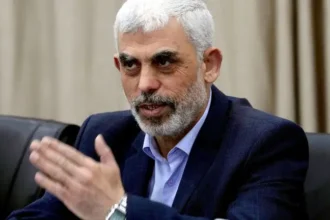As Nigeria and other nations of the world mark 2024 World Food Day, Federal Government has said it will do everything possible to tackle hunger in the country.
This was disclosed in a press release issued by Eremah Anthonia, Chief Information Officer: For Director, Information of the Ministry.
The Minister of State for Agriculture and Food Security, FMAFS, Sen. Aliyu Sabi Abdullahi made the declaration at a Ministerial briefing to mark the Day, with the theme: “The right to food for a better life and a better Future.”
According to the Minister, much has been achieved in the sector as a result of the Federal Government‘s policy initiatives and innovative funding.
Abdullahi noted that in 2017, Nigeria recorded significant achievement in the global agricultural sector, adding that it ranked first in cassava and yam production with 59.4 million tons and 47.9 million tons, respectively.
He said the country also ranked the 14th in Maize production with 10.42 million tons and 4th in Palm oil with 7.7 million tons in the same year.
Speaking further, the Minister pointed out that in 2019, Nigeria became the largest producer of rice in Africa with a production level of 9 million metric tons noting that, “This indeed is a true testimony of our overall commitment to boosting agriculture and providing sufficient food to the teeming population.
“Building on the momentum to end hunger and promote sustainable agriculture, the present administration under President Bola Ahmed Tinubu, is implementing lots of policies, programmes and initiatives to ensure the Right to Food for a better life and better future in Nigeria by placing food security as a top-most national priority in its Renewed Hope Agenda.”
The Minister added that, “This year, the Nigerian Government has ordered for immediate release of more than 102,000 metric tons of Maize, Millet, Garri in addition to other food commodities from the National Food Reserve to Nigerians as a temporary response to the nation’s rising cost of food. The administration has also resorted to importing some food commodities as an interim measure to augment food shortages.
“During the National Broadcast on Nigeria’s 64th Independence Anniversary, President Bola Ahmed Tinubu GCFR emphasized commitment to reducing food costs and increasing food production. The government is prioritizing mechanized farming with the aim of accelerating agricultural production and promoting economic growth.
“This administration has outlined plans to cultivate 500,000 hectares of farmlands across the country to grow maize, rice, wheat, millet, and other staple crops to boost food supply and affordability.
“The strategy involves collaboration with State Governments to stem inflation and enhance food security in the country.”
He pointed out that economic opportunities were being enhanced for inclusive participation of small and marginal farmers, women, and youths to create jobs, reduce poverty, and boost economic growth.
He went further to state that, “It is the resolve of the present administration to develop the agricultural sector towards the attainment of the objectives of the Sustainable Development Goals, SDGs, especially those of zero hunger and to improve agriculture and rural productivity. Agriculture remains a potent tool to fight hunger, poverty, and unemployment. It is against this backdrop that we wish to reiterate our commitment to reducing these menace and ensure prosperity for all Nigerians.”
In his remarks, the Assistant Country Representative, Food and Agriculture Organization, FAO, Salisu Mohammed revealed that the March 2024 Cadre Harmonise protected 31.8 million people in Nigeria at risk of food insecurity, and just recently, the country was hit by yet another devastating floods.
Pointing out that across Nigeria, an estimated food loss was about 855, 629 metric tonnes which was equivalent to the amount of food which could feed 8.5million people for six months, Nigeria will face adversities again but there are solutions if we work together.
He, therefore, advised the Ministry to provide the enabling environment for food production.
The National President, All farmers Association of Nigeria, AFAN, Kabiru Ibrahim also called on Government to incentivize farmers and give them support to produce more food for Nigerians.
Earlier, to commemorate the day, the Officials of the Ministry went on a visit to farm clusters in Bwari Area Council, Government Girl Secondary School, Dutse and also embarked on sensitization road walk, as part of the World Food Day celebrations.










